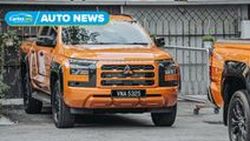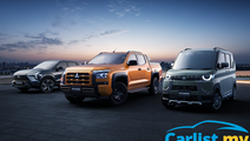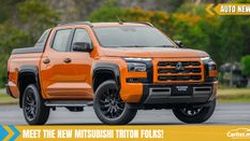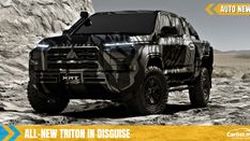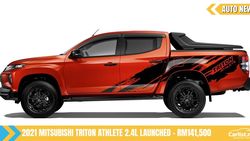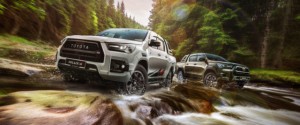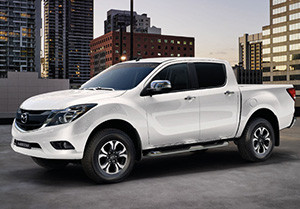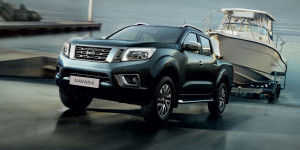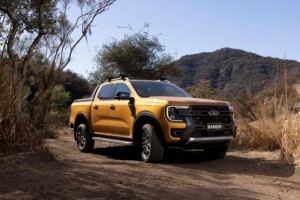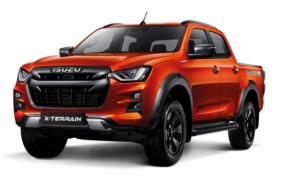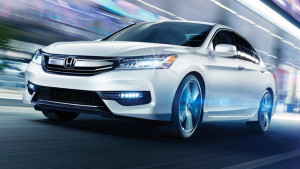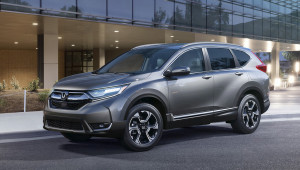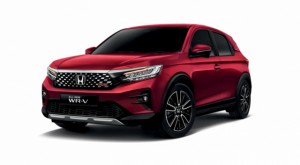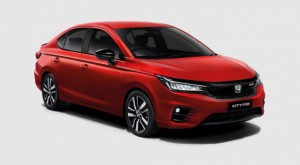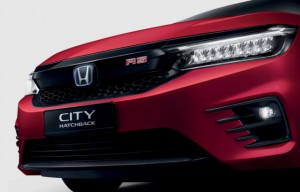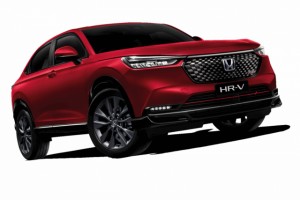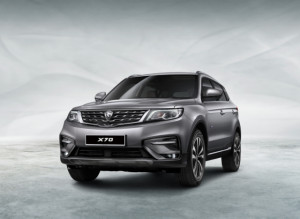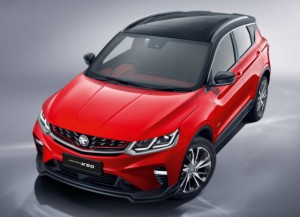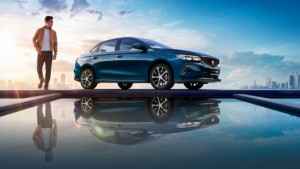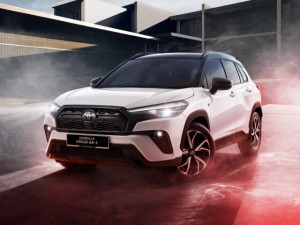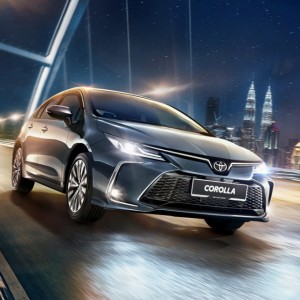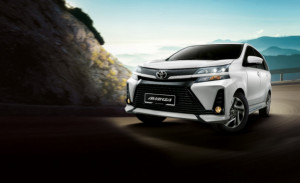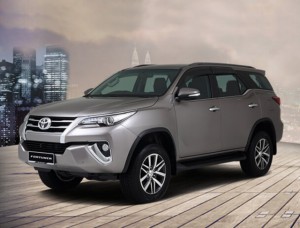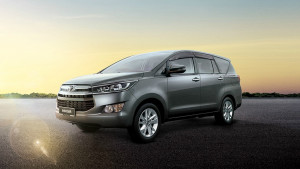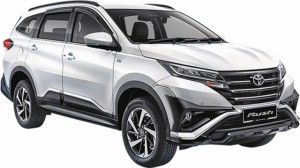Key Highlights
Overview
Mitsubishi Triton 2021-2022 Review
As a brand, Mitsubishi has evolved a great deal over the last few decades and shifted their direction away from regular passenger car sedans and hatchbacks, choosing to focus instead on pickup trucks, SUVs, and MPVs. It is the first of this three that really represents the bread and butter of Mitsubishi in a number of markets, especially in Malaysia – and this is represented by the Mitsubishi Triton.
At one point in its history, Malaysians may have known the Triton as the Storm, although the naming scheme changed and has been consolidated into what we see today. The first generation of the Triton was launched all the way back in the 1970s, and the second in the mid 1980s. The third generation is where Malaysians were first introduced to the product in the mid 1990s, while the fourth generation was a huge generational leap in the mid 2000s.
Now in its facelifted fifth generation, the Mitsubishi Triton is an impeccable example of what happens when a brand really listens and understands its consumer base. There’s a strong argument for saying that the Triton is what redefined the market, forcing other manufacturers to rethink how they design and engineer their pickup truck products for an increasingly urban consumer base.
For this generation of the Triton that’s on sale, Mitsubishi has expanded the lineup to six different variants – five of which are 4 x 4, and one of which is the Quest 4 x 2 designed to be more of a workhorse vehicle. There are two engine options, three transmission options, and three different trim levels to choose from.
Mitsubishi Triton 2021-2022 Specifications
Like we mentioned earlier, there’s a decent amount of range when it comes to what powers the Mitsubishi Triton. The workhorse Triton Quest has its own unique engine in the form of a 2.5-litre turbodiesel, that pushes out a functional 110 PS and 200 Nm of torque, sending power to the rear wheels only through a five-speed manual transmission.
Every other variant of the Mitsubishi Triton gets the same 2.4-litre turbodiesel engine making a healthier 181 PS and 430 Nm of torque – and this particular engine has been incrementally improved over the course of nearly a decade. One of the talking points of it is the Variable Geometry Turbine that helps to cut down turbo lag while maintaining respectable power levels. You can have it with either a six-speed manual or a six-speed automatic depending on the variant, though all of these are 4x4.
The turning radius is a surprisingly small 5.9 metres. The wheelbase is consistent throughout the range at 3,000 mm, with a length between 5,200 mm and 5,305 mm, a width consistent at 1,815 mm, and a height between 1,655 mm and 1,795 mm. Fuel tank capacity is reasonably large at 75 litres.
Mitsubishi Triton 2021-2022 Exterior
With the exception of the Mitsubishi Triton Quest (which is intentionally lowered and more bare bones), the Triton range looks incredibly handsome and sharp – well proportioned from nose to tail, though unfortunately limited to more mute tones with the exception of the Triton Athlete that gets Sun Flare Orange Pearl. All models get halogen projector headlights and daytime running lights, except the Triton Athlete that ups this to Bi-LED and LED units respectively. Front fog lamps are available from the Triton VGT AT and up, and the front grille changes from colour key painted in the Triton VGT MT and Triton VGT AT, to Chrome in the Triton VGT MT Premium and Triton VGT AT Premium, and eventually gloss black for the Triton Athlete.
Mitsubishi Triton 2021-2022 Interior
The inside of the Mitsubishi Triton has evolved in as big of a step as the exterior, though it has maintained its position as one of the more passenger-car like and functional interiors over other pickup truck models. The infotainment unit sits high and centre on the dashboard, flanked my air conditioning vents and sitting atop the climate control switchgear. The instrument cluster is a simple dual analogue dial setup, with higher trim levels getting a coloured display sitting in between. Quality of life items such as rear smartphone chargers and storage, as well as air circulator vents on the roof are surprising additions – though naturally limited to the Triton Athlete variant.
Mitsubishi Triton 2021-2022 Safety Features
It’s pretty easy to understand the spread of safety features across the Mitsubishi Triton range. The Triton Quest as the bare bones workhorse gets the simplest assortment – the bare essentials like ABS with EBD, ISOFIX for the rear (surprisingly), and two front airbags. The next five variants in the range (basically every other Triton except the Athlete variant) get Brake Assist, Active Stability Control, Traction Control, Hill Start Assist, and Trailer Stability Assist.
The Triton Athlete takes it even further with extra side, curtain, and driver knee airbags for a total of seven, as well as Hill Descent Control, and a Rest Reminder. But the main party piece of the Triton Athlete is its assortment of advanced safety items, such as Forward Collision Mitigation with warning and braking functionality, Blind Spot Warning, Lane Change Assist, Rear cross Traffic Alert, Automatic High Beam, and Ultrasonic Misacceleration Mitigation System.
Mitsubishi Triton 2021-2022 Strengths and Weaknesses
While the impeccably small turning radius of the Mitsubishi Triton is often advertised as a strong point, there’s absolutely more to love about this pickup truck. The styling is definitely a standout point, being a surprisingly modern and sharp take on a workhorse vehicle – looking a little futuristic even.
On top of this is surprising refinement from the powertrain and the overall ride and handling. The engines are robust units, putting out respectable performance while also being proven time and again in endurance events like the Borneo Safari and Paris Dakar. On the note of ride and handling, the Triton also manages to drive surprisingly like a car – and in fact if you spend enough time with one and ignore the ride height, it really isn’t too far off the experience of driving a regular passenger car.
There aren’t too many chinks in the Triton’s armour, although perhaps the material choices for the dashboard could be a little nicer – and there have been the occasional complaint about fitment and panel gaps when it comes to the interior of production models. These are more nit-picking items than deal breakers – the broad strokes are still fantastic.
Mitsubishi Triton 2021-2022 Price
Ownership of the Mitsubishi Triton starts at RM 79,890.00 for the Triton Quest variant – inclusive of a 100,000 km, 5-year warranty. From there, there’s a steady incremental increase, all the way up to the Triton Athlete that runs you RM 141,500.00. The Triton VGT MT goes for RM 100,200.00, the Triton VGT AT goes for RM 105,990.00, the Triton VGT MT Premium goes for RM 113,300.00, and the Triton VGT AT Premium goes for RM 121,000.00. All variants except for the Triton Quest get a 200,000 km, 5-year warranty.
Mitsubishi Triton 2021-2022 Features
As far as features go, it’s the Mitsubishi Triton Athlete that gets the best items. The Athlete, along with the VGT Premium variants, gets a six speaker setup, one front and two rear USB ports, rear smart phone storage, digital automatic air conditioning with rear individual vents, and cruise control. The Athlete adds power-adjustable driver seats, as well as paddle shifters for better manual override of the transmission.
Mitsubishi Triton 2021-2022 Fuel Consumption
Depending on how you drive your Mitsubishi Triton, you can get some pretty drastic changes in fuel consumption. Generally the variants packing the 2.4-litre VGT turbodiesel engine are capable of clocking between 7.5 and 10.5 litres per 100 kilometres depending on how you drive them, which is between 9.5 and 13.3 kilometres per litre.
Exclusive deals for you
Get April Offers from authorized dealers near you!
Key Details
- Body Type: Pickup Truck
- Transmission: Manual/Automatic
- Engine Capacity: 2442 cc - 2477 cc
- Fuel Type: diesel
- Seat Capacity: 5
- Price: RM 79,890 - RM 142,800
Variations
From RM 100,200
From RM 135,200
From RM 100,200
From RM 79,890
From RM 105,990
From RM 142,800
From RM 113,300
From RM 123,300
From RM 113,300
Key Details
- Body Type: Pickup Truck
- Transmission: Manual/Automatic
- Engine Capacity: 2442 cc - 2477 cc
- Fuel Type: diesel
- Seat Capacity: 5
- Price: RM 79,890 - RM 142,800
Reviews
-

Arvind
17 Dec 2020
Review: 2020 Mitsubishi Triton Adventure X
Body control and rigidity on the road is among the best you could get on a truck, the Ford Ranger is just as good in my opinion, but there’s a sense of agility in the Triton that is just not there in the trucks such as the Toyota Hilux, Isuzu D-Max, and Nissan Navara. Of course one could argue, that a truck is first and foremost a utilitarian vehicle that needs to haul large loads, cover a long distance in relative comfort, and return good mileage, and you’d be right – in this aspect, I’d say the Isuzu D-Max 1.9L and Toyota Hilux are unbeatable. Well not quite, given its relatively small engine size and high power output – the Adventure X does use up its fuel in pretty quick order. During a roughly 1,000km road trip to Kuala Terengganu and back, the Adventure X used up just under two full tanks of fuel. Averaging about 450km per full tank. Perhaps 480km per tank is possible with more conservative driving, but it still pales in comparison to the likes of the Isuzu D-Max and Ford Ranger.
View full review -

Gokul
15 Feb 2019
2019 Mitsubishi Triton 2.4L MIVEC – Why Its Super Select 4WD II Is The Best Around
Gone are the Lancer and Galant, and along with it the illustrious Ralliart world rallying program - all done so the company can have a chance of recovery by concentrating a laser-like focus on 4x4 vehicles – the one area where nobody, not even the mighty Toyota could match it, at least not in terms of technology.
View full review
User Review of Mitsubishi Triton
Value for money
Great Handling , Great Power Delivery , joy to dri
Power beauty adventure
Excellent handling and powerful
MITSUBISHI TRITON THE BEST !!
Latest News
Similar cars
Latest Videos

Thank you!





